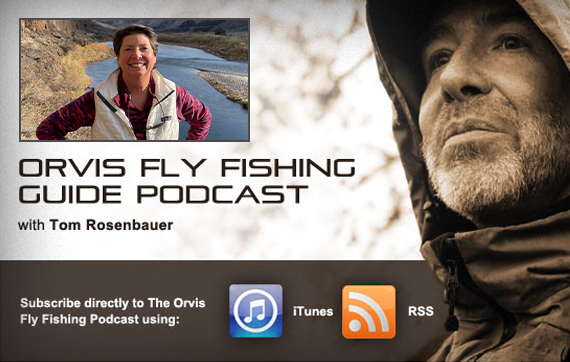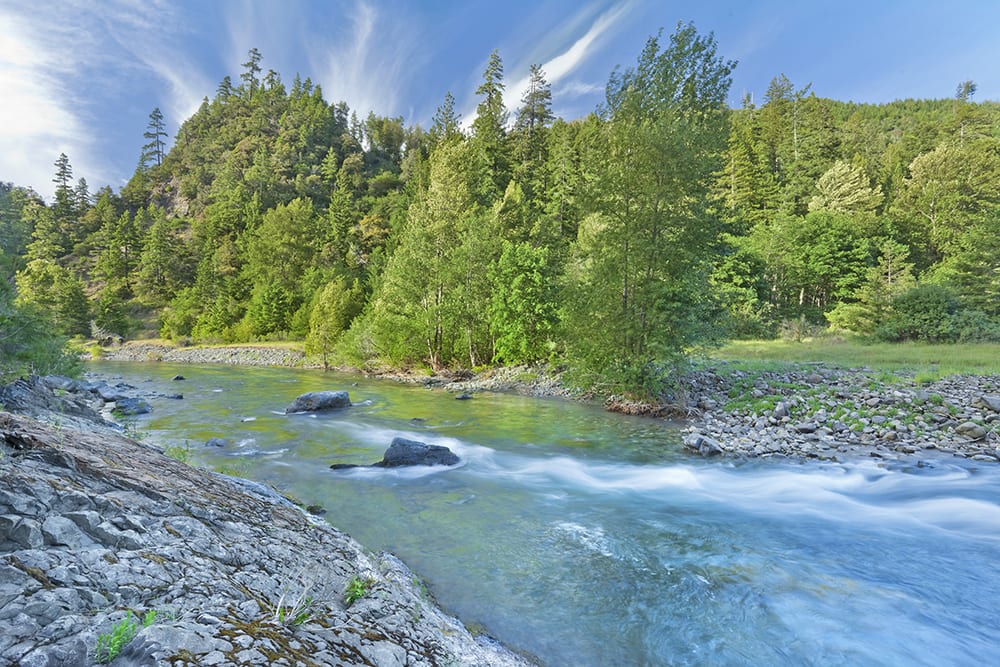If you’ve ever been curious about Western Rivers Conservancy’s tagline “Sometimes to save a river, you have to buy it,” give Orvis’ recent “Fly Fishing Guide” podcast a listen! WRC president Sue Doroff was recently featured on the show, where she joined host Tom Rosenbauer to talk in-depth about what WRC does and exactly how we do it.
During the interview with Rosenbauer, Sue dug deep into WRC’s unique brand of conservation, using a handful of milestone conservation projects to illustrate how we work.
 Sue and Tom kicked things off with a discussion of WRC’s efforts at Montana’s Three Dollar Bridge back in 2002. This was when we permanently conserved three miles of the Madison River and guaranteed permanent public access to world-famous fly fishing at Three Dollar Bridge. It was a great illustration of how WRC protects habitat and delivers public access at the same time.
Sue and Tom kicked things off with a discussion of WRC’s efforts at Montana’s Three Dollar Bridge back in 2002. This was when we permanently conserved three miles of the Madison River and guaranteed permanent public access to world-famous fly fishing at Three Dollar Bridge. It was a great illustration of how WRC protects habitat and delivers public access at the same time.
From there, Sue delved deeper into WRC’s work, shifting focus to the West Coast, where she used two of WRC’s largest projects to demonstrate some of the innovative ways we conserve riverland, fund our work and deliver lasting results.
Blue Creek was the standout. Sue explained how we worked in partnership with the Yurok Tribe to create a cold-water salmon sanctuary and sustainable community forest to ensure the entirety of Blue Creek is protected forever. This is one of WRC’s most historic projects to date, and a landmark conservation accomplishment in California. It required boldness, creativity and expertise—and the need to round up $60 million to bring it to the finish line.
Sue also talked at length about Washington’s Hoh River, where WRC undertook a nine-year initiative to purchase and conserve all of the industrial forestlands along the lower 30 miles of the river. The effort created an unprecedented conservation and recreation corridor and ensured that the Hoh was fully protected, from its headwaters in Olympic National Park all the way to the Pacific Ocean.
The best part about the interview is that it offers a rare deep-dive into the how and why of WRC’s work and an opportunity to really understand what makes the organization unique. We’re partial, but we highly recommend you tune into the podcast. Just search “Orvis Fly Fishing Guide” (or “Sometimes to save a river, you have to buy it!”) wherever you get your podcasts. Happy Listening!


